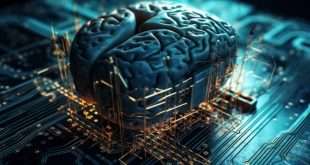In recent years, the world of technology has witnessed a monumental shift with the advent of quantum computing. This revolutionary technology has the potential to redefine the very nature of software development, paving the way for unprecedented advancements in web technologies and cloud computing. In this blog, we delve deep into the fascinating realm of quantum computing and explore how it is set to shape the future of web development and computing. Join us on this journey as we unravel the intricacies of quantum computing and its impact on the world of software development.
Understanding Quantum Computing
Before we embark on this transformative journey, let’s first grasp the fundamental principles of quantum computing. Traditional computers rely on bits, represented as 0s and 1s, to process information. Quantum computers, on the other hand, leverage quantum bits or qubits, which can exist in multiple states simultaneously due to the phenomena of superposition and entanglement. This unique characteristic allows quantum computers to perform complex calculations at an exponential speed, far surpassing the capabilities of classical computers.
The Potential of Quantum Web Technologies
The advent of quantum computing brings forth a new era of web technologies, promising unparalleled advancements in various fields. Let’s explore how quantum computing can redefine the landscape of web development technologies and open up a realm of possibilities:
Quantum Security Enhancements
One of the most significant advantages of quantum computing lies in its potential to revolutionize web security. Quantum cryptography can provide unbreakable encryption algorithms, safeguarding sensitive data from cyber threats. Quantum-resistant algorithms will become essential as traditional cryptographic methods become vulnerable to quantum attacks.
Quantum Machine Learning
Quantum machine learning holds immense promise in solving complex problems, such as natural language processing and pattern recognition. It can accelerate AI training and enable more sophisticated applications, thereby elevating user experiences on websites and web applications.
Quantum Computing in Cloud Infrastructure
Quantum computing can transform the cloud computing landscape by optimizing resource allocation and enhancing cloud security. Quantum cloud services will offer faster data processing, reducing latency, and improving overall cloud performance.
Quantum Computing and Unborn Softwares
As quantum computing progresses, it will significantly impact the development of unborn softwares, pushing the boundaries of what is possible in web application development. Here’s how quantum computing is poised to reshape the future of unborn softwares:
Quantum Algorithm Development
Quantum algorithms, designed to leverage the full potential of quantum computers, will play a pivotal role in creating powerful, efficient, and sophisticated web applications. Developing these algorithms will require collaboration between quantum physicists, mathematicians, and web developers.
Quantum Web Development Tools
The emergence of quantum web development tools will equip developers with the means to harness quantum computing’s capabilities. These tools will streamline the process of building and optimizing quantum-ready web applications, making quantum development accessible to a broader audience.
Quantum User Interfaces
Quantum computing will usher in a new era of user interfaces, offering enhanced interactivity and responsiveness. Quantum-powered user interfaces will enable seamless interactions and intuitive user experiences, setting new standards for web application design.
Embracing the Quantum Leap
As we stand on the cusp of this technological revolution, it is essential for businesses and developers to embrace the quantum leap and prepare for the future. Quantum computing will disrupt the web technology landscape and present new challenges and opportunities. By understanding and integrating quantum computing into their strategies, businesses can gain a competitive edge in this rapidly evolving digital age.
Final Words
In conclusion, quantum computing holds the key to unlocking a new era of web technologies and revolutionizing the way we develop software. From quantum security enhancements to quantum machine learning and quantum cloud infrastructure, this technology offers unprecedented potential for web development and computing.
Embracing quantum computing will be crucial for businesses and developers seeking to stay ahead of the curve and innovate in the digital realm. As quantum web technologies continue to evolve, they will redefine unborn softwares, creating a future where the impossible becomes possible.
Commonly Asked Questions
Q1. What is Quantum Computing?
Quantum computing is a cutting-edge technology that utilizes quantum bits or qubits to process information in multiple states simultaneously, enabling faster and more efficient calculations than traditional computers.
Q2. How will Quantum Computing Impact Web Development?
Quantum computing will revolutionize web development by offering enhanced security, faster AI processing, and quantum-ready web development tools, paving the way for advanced user interfaces and experiences.
Q3. Can Quantum Computing Enhance Cloud Infrastructure?
Yes, quantum computing can optimize cloud infrastructure by improving resource allocation and enhancing security, leading to faster data processing and reduced latency.
Q4. What are Quantum Algorithms?
Quantum algorithms are specialized algorithms designed to leverage the power of quantum computers to solve complex problems and create efficient web applications.
Q5. How can Businesses Prepare for Quantum Computing?
Businesses can prepare for quantum computing by staying informed about advancements in the field, collaborating with experts, and considering how quantum computing can enhance their web development strategies.
 webfily
webfily



